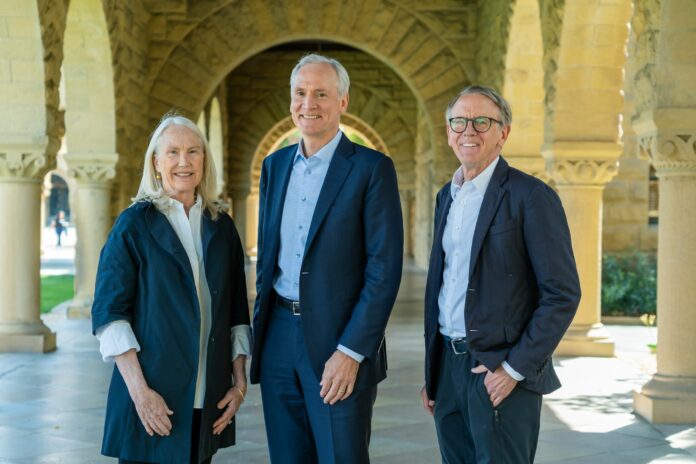Stanford University now has its sights set on allegedly manipulated research papers dated back from the early 2000s—and their author, President March Tessier-Lavigne.
Once president of Rockefeller University, Tessier-Lavigne was also chief scientific officer at Genetech and is well-known for his research on axon guidance molecules. However, on Tuesday, it was revealed that a prominent research journal confirmed to the school’s newspaper, The Stanford Daily, that a paper co-authored by the university’s president is not under review for potential scientific misconduct. The allegations claim that he altered multiple images used in the paper.
According to a statement shared with the Daily’s reporter, the university “will assess the allegations presented in The Stanford Daily, consistent with its normal rigorous approach by which allegations of research misconduct are reviewed and investigated.”
“Scientific integrity is of the utmost importance both to the university and to me personally,” Tessier-Lavigne said in a statement. “I support this process and will fully cooperate with it.”
The publications that are now under review include a pair of 2001 Science papers, a 2003 Nature paper, and a 2008 paper in the European Molecular Biology Organization’s The EMBO Journal.
Allegations first surfaced several years ago on PubPeer, an online forum that allows scientists to address concerns in publications. What will hopefully come out of the investigation is whether the altered images were simply mistakes or clear signs of research misconduct.
According to the Daily, the university addressed “issues” in his papers but downplayed his role in the potential research misconduct.
Elisabeth Bik, a biologist and science misconduct investigator, advised Tessier-Lavigne to take these concerns very seriously.
“I hope that Dr. Tessier-Lavigne will not brush off these concerns as irrelevant,” she wrote to The Stanford Daily. “There appear to be a lot of visible errors in these papers, and some duplications are suggestive [of] an intention to mislead. Dismissing these as not affecting the data is not very reassuring. The reader might wonder how many non-visible errors might be present in other parts of the data.”
More from UB: Ohio State president announces “difficult decision” to resign






